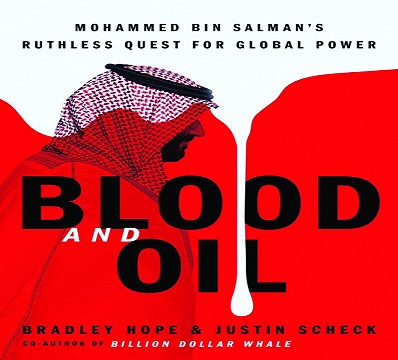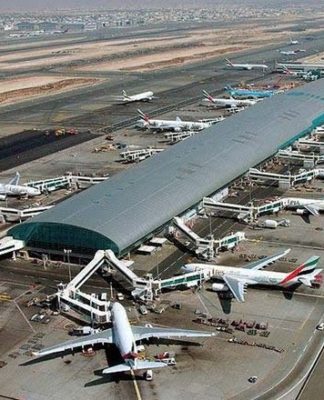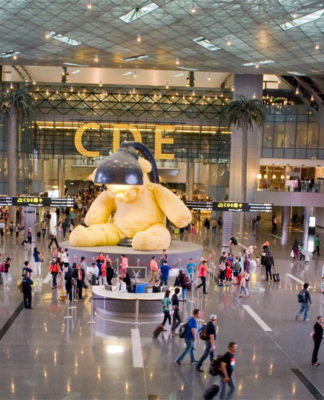The book, “Blood and Oil,” by Bradley Hope and Financial Adviser Justin Shek, published on the first of September, reveals important details about the rise of Mohammed bin Salman, the Saudi Crown Prince to power, and his method of liquidating his opponents and opponents through arrests, kidnappings, torture and physical liquidation by relying on a network. Who are loyal to him. The book also examines the impact of Bin Salman’s political performance in fueling political tensions in the Middle East, and the global oil and financial markets.
The book talked about bin Salman’s plan to portray Qatar as a state supportive of terrorism in March 2017, before its siege on June 5 of the same year, and it was used in implementing the plan to distort the image of Doha and justify the blockade by a group of journalists, who were classified as neutral, and their influence was moderate or high in opinion. Global year.
in-depth details
The book talks about accurate details about what happened in November 2017 during the campaign of the Ritz-Carlton arrests, including that Mohammed bin Salman ordered the hotel to be emptied of its employees, changed all locks, and prevented any of the detained princes from going to the bathroom except with the escort of guards. The book reveals how the number of imprisoned princes and businessmen rose from 50 to more than 300 in less than two weeks and how they all slept on the floor during their detention at the Ritz-Carlton Hotel. Bin Salman asked specialists to design “arrest dresses” for princes and businessmen. He did not want to see them “through surveillance cameras” in their private clothes. Rather, he forced them to wear arrest clothes. He wanted to feel the power and power.
The book stated: “The real“ Game of Thrones ”began among the descendants of the Al Saud family. Bin Salman won despite efforts by other great princes to undermine his rise to rule the country. Bin Salman worked tenaciously for a year, defeating competitors in 2015, after delegating extraordinary powers. To him, as he consolidated his control over the military and security services and began to end the kingdom’s faltering oil-dependent economy. To tighten his grip on power, his security forces assassinated journalist Jamal Khashoggi in Istanbul. After all his dangerous moves, understanding the young prince’s rise to power has become increasingly important to world leaders who are trying to assess the direction to be taken by the Kingdom if Prince Mohammed ascended the throne.
collect money
The book stated that Mohammed bin Salman was obsessed with collecting money, particularly and that he discovered at the age of 15 that his family branch had a lot of money compared to the wealth of others in the ruling family. If he was not able to build wealth in his youth, he predicted an uncertain future. Before money became the main concern, Mohammed bin Salman was enjoying more casual entertainment. He enjoyed McDonald’s and video games, then decided to become a family businessman.
For years, Mohammed bin Salman had been hiding gold coins that were given to him as a gift by the time he was 16 years old, Muhammad was able to collect nearly $ 100,000 USD after selling the luxurious gold watches he had received as gifts. But first, for a while, his wallet gained value, giving him a thrill that he would continue to pursue. He decided to travel abroad after university and enter into investments in banks, telecommunications or real estate. Not expecting real political power as the youngest son with low chances of becoming king, there was little chance of his ascension.
The book stated: On some evenings, Mohammed bin Salman would take his friends out to the desert where he talked about plans to become billionaires like Steve Jobs and Bill Gates, men who built a legacy by focusing on results and being smarter than competitors. And he spoke with attractiveness, message and growing frustration towards Saudi youth. “We are the ones who can decide the future of our generation,” recalled one of the attendees. “If we do not move, it is going to do?
Bin Salman initially focused on building wealth, and the creation of companies and the acquisition of the shares of major companies. In 2008, and persuaded through intermediaries, Verizon to bring the infrastructure of fiber optic to Saudi Arabia. Saw the deal for Verizon On a minority stake in a joint venture his biggest partner was one of his many companies.
The Verizon legal department was headed at the time by William Barr, who currently holds a position in the United States. This deal helped bin Salman strengthen his position locally, but the deal did not go ahead, because Bin Salman did not have the experience to complete the project, Verizon incurred the loss and left. Trading in Bin Salman’s shares also took a hit as regulators discovered suspicious trading patterns linked to the accounts of Prince Mohammed and other princes. The chief Saudi stock regulator investigated at the time in 2013, and determined that a trader operating on Muhammad’s behalf was responsible for the suspicious trading. The accident sparked outrage. Bin Salman was carefully studying how to regain his place in the royal court. He knew how to make himself useful to the elderly, and he performed tasks extremely repugnant to other princes, such as expelling a widow from a palace she refused to evacuate.
Obsessed with power
The book showed that bin Salman realized that with the death of the uncles, he had a chance to rise – and it would be up to him to develop strategies to fend off their rivals in a ruthless manner, the tricks helped seal the deal. Suddenly his ideas became the top priority in the royal court. At four in the morning, he summoned officials and businessmen to meet later that day. He asked them if there were risks in reshaping the government by getting rid of King Abdullah’s governing committees. Some have said that such a change must be done slowly to monitor for unforeseen impacts. Bin Salman replied: “Nonsense.” “If that is the right thing to do, then we are doing it today.” Within a week, bin Salman was appointed in charge of the economy and the military in the kingdom, and this haste would become a trademark of his reign. He surrounded himself with new advisers, some of whom had little experience, and encouraged them to discuss with him at night about political ideas. And Mohammed al-Sheikh – the man he investigated in 2013 – was appointed responsible for cracking down on financial fraud. Soon after, he took control of the state oil company Saudi Aramco – the most profitable company in the world and put its money at his disposal – he would transform the kingdom’s dying sovereign wealth fund into the most influential investor in Silicon Valley. The teen, obsessed with building his fortune, by simulating men like Jobs, now has control over more money, building wealth and power has become the crown prince’s obsession.
- Articles
- Top 10
- Book
- Book of the week
- News
- Economic news
- Entertainment
- Famous People
- Financial News
- News of Welcome Qatar Company
- Political News
- Qatar News
- Social News
- Sport News
- World News
The book “Blood and Oil” reveals the conflict in Saudi Arabia





























